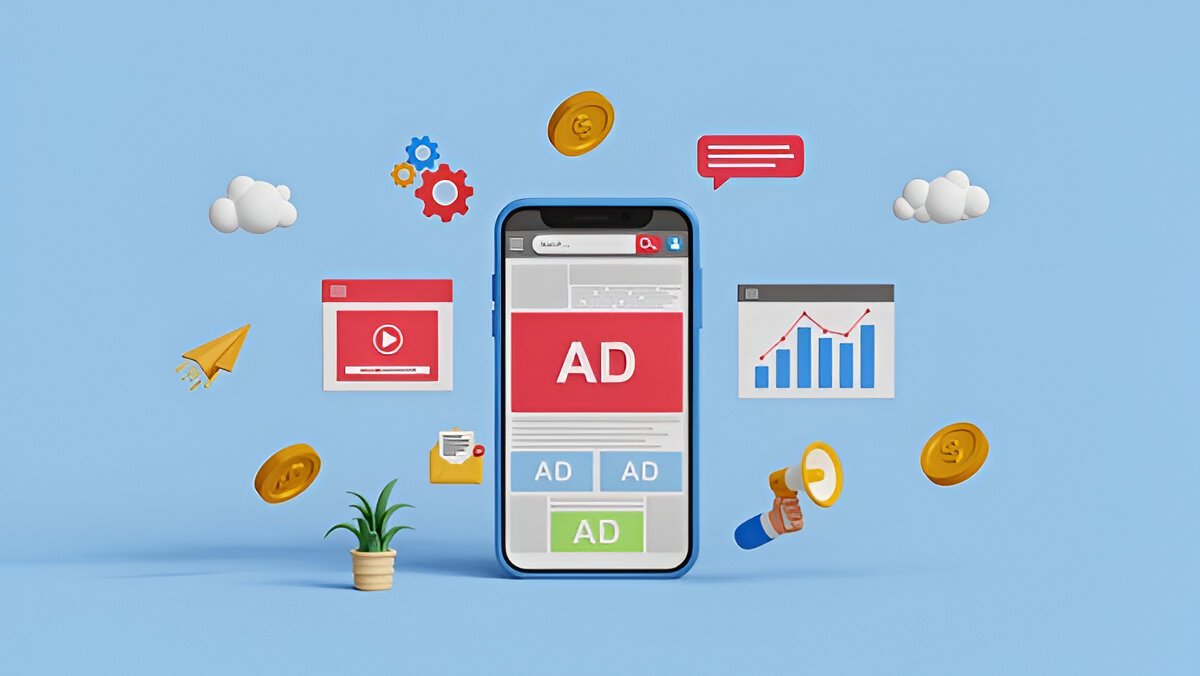
Search Engine Marketing (SEM) often feels like it starts and ends with Google Ads. But is that truly the full picture? Many marketers, especially those new to the field, believe Google Ads is the only gateway to SEM success.
Let’s clear that up. SEM can absolutely be done without Google Ads. In fact, there are several ways to run effective search engine campaigns without ever touching Google’s ad dashboard.
Understanding SEM Beyond Google
What Is SEM Really About?
SEM is about paid visibility on search engines. You pay to appear in front of users searching for terms related to your product or service. The goal is to get fast, targeted traffic. While Google dominates the search engine market, it is not the only platform offering paid search results.
Why People Think SEM = Google Ads
Google is huge. Its dominance makes it natural for marketers to default to it. But this popularity has created a misconception: that SEM can’t be done elsewhere. This isn’t just limiting; it’s wrong.
Platforms for SEM Without Google Ads
If you want to do SEM without Google Ads, you need to look at alternative platforms that offer search-based advertising.
Microsoft Ads (Bing Ads)
Microsoft Ads is the next best-known alternative. It powers search ads on Bing, Yahoo, and AOL. Even though Bing has a smaller market share than Google, its audience still numbers in the hundreds of millions.
Many businesses overlook it, which means lower competition and often better cost-per-click rates. Microsoft Ads also tends to perform well in specific industries, especially finance and tech.
Amazon Ads
If you’re selling physical products, Amazon is a strong SEM platform. People go there ready to buy. Its search ads work within the Amazon ecosystem, and the intent to purchase is often much higher than on traditional search engines.
You’re not reaching people early in the buying journey—you’re catching them right before they make a purchase.
YouTube Search Ads
YouTube isn’t just for entertainment. It’s the second-largest search engine in the world. People search for tutorials, reviews, and answers. You can run search-based video ads that appear when people search on YouTube.
While technically managed through Google Ads, YouTube search campaigns can be considered a separate strategy if you’re only targeting video intent and not search result pages.
What Makes a Platform SEM-Ready?
For a platform to support SEM, it needs two things:
-
A built-in search function where users input queries.
-
An ad system that places paid results based on those queries.
Any site that meets these two conditions can be used for SEM.
So when we ask, Can SEM be done without Google Ads?—the answer is yes, as long as there’s a search bar and an ad auction behind it.
Is Social Media SEM?
Not quite. Social media platforms like Facebook or Instagram run on interest targeting, not search intent. If you’re targeting users based on behavior, likes, or demographics, that falls under Social Media Marketing (SMM) or paid social, not SEM.
That said, platforms like Pinterest and Reddit blur the line a little. Pinterest users often search with intent, and it has its own advertising platform based on keywords. Reddit offers keyword-based targeting within subreddits too.
Still, they’re often not considered pure Searce engine marketing.
Why Consider Alternatives to Google Ads?
Cost Efficiency
Google Ads can get expensive. Keywords in competitive niches like law, insurance, or software can cost a fortune. Microsoft Ads or niche platforms can offer lower CPCs for similar conversions.
Less Competition
Because most marketers prioritize Google, other platforms are often less crowded. This gives you more visibility for less money.
Access to a Different Audience
Every platform has its unique user base. Bing users tend to be slightly older and more affluent. Amazon users are buyers. YouTube users are seekers of visual information. Depending on your product or service, these differences matter.
The Technical Side of Non-Google SEM
Keyword Targeting Still Applies
Just like Google Ads, these platforms let you target users based on search keywords. You’ll need to do proper keyword research using tools like:
-
Microsoft Keyword Planner (for Bing)
-
Amazon Seller Central tools
-
Third-party tools like SEMrush or Ahrefs
Landing Pages Still Matter
No matter the platform, Searce engine marketing success depends on the quality of the landing page. Make sure your page matches the user intent, loads quickly, and clearly shows the value of your offer.
Tracking and Analytics
Google Analytics isn’t your only option. Microsoft Ads integrates with Clarity. Amazon has its internal metrics. You can also use tools like Matomo or Plausible for privacy-focused tracking.
Proper tracking lets you know which campaigns bring real ROI, not just clicks.
Common Mistakes When Avoiding Google Ads
Some marketers jump to alternative platforms without a plan. They assume lower CPCs mean guaranteed ROI. That’s not always true.
Here are some common pitfalls:
-
Ignoring user intent differences between platforms.
-
Using the same creatives across all channels.
-
Skipping platform-specific keyword research.
-
Not testing enough variations of ads.
Each platform has its quirks. Take time to learn them.
Should You Skip Google Ads Altogether?
If your budget is tight or you’re in a niche where Google Ads is saturated, skipping Google isn’t a bad idea. But for many brands, the best approach is to combine Google Ads with one or two other SEM channels.
You don’t need to choose one or the other. Diversify your traffic sources. That gives you better data, more resilience, and improved campaign performance.
If you’re exploring Searce engine marketing beyond Google Ads, make sure you’re also aware of SEM protection strategies to keep your campaigns secure and effective.
Final Thoughts
So, can SEM be done without Google Ads? Absolutely.
Google is just one door. And while it’s the biggest, it’s not the only one. Many businesses have found strong results with Bing, Amazon, Pinterest, and other search-based platforms.
The real key is to understand the platform, know your audience, and tailor your strategy accordingly.



Leave a Reply